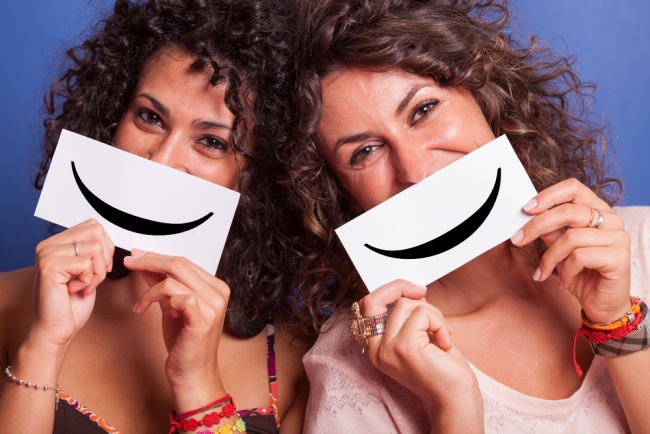It was a day in October 2010. A student in the Gaibandha district of Bangladesh in the northwest noticed that a label of the sweet she was eating had gone black. She was afraid and thought it was a “devil’s deed.” She fell ill immediately and complaint of heartburn, severe abdominal pain & headache.
The condition spread to her fellow students and later to other schools of the area. But there was no contaminant found by the toxicologists and all those who were affected were discharged from the hospital after no trace of illness was found. However after investigation, it was found in the following week that it was a “mass sociogenic illness.” Which is also called mass hysteria. The children were affected by the symptoms as they had seen their classmatessuccumb.
http://www.adweek.com/socialtimes/files/2014/03/WomenHoldingSmileyFaces650.jpg
This is just an extreme example of a phenomenon that is common and is known as: emotional contagion. We are very much affected by the behaviors and moods of others.
The cause of the Great Depression (1930s) is said to be emotional contagion. It is the reason behind the fuel crises, spread of public grief and health scares.
But emotional contagion is also considered to be good and necessary. When we mimic each other’s expressions, it is necessary for social interactions.
A study carried out in 1966 by the University of Pittsburgh suggested that people copy each other’s body movements in just 21 milliseconds. Mimicry response is something that we have seen from the start. All primates including human infants do it. The infants copy their mother’s gestures when they are only a few hours.
When two people are in conversation, the coordination of their movements is much synchronized. Besides physical synchrony, mimicry can lead to emotional understanding too. If we copy the expression of other’s face, we begin to experience the emotions of those expressions.
Although it is overwhelming to note that the emotions can transfer through friendship groups or even populations. It also concludes that we are sometimes not in control of what happens to us and can make bad decisions.
But, it is also a fact that without emotional contagion, we would be lost almost all the time.
Anna Tingson
